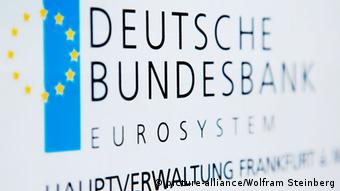A study by Germany's central bank shakes up cliches by suggesting that people in crisis-stricken countries such as Italy and Spain remain much wealthier than Germany. Experts see reason to doubt the results, though.
Swabians in southern Germany are fond of a saying that translates as, "Work, work, and build a home." Owning a home with a front yard and plenty of room for children - is that how the average German really lives? A study by the Deutsche Bundesbank, Germany's central bank, says no. In comparison with citizens of neighboring countries, 44 percent fewer Germans own their own house or apartment. In France, 58 percent are homeowners; in Italy, 68 percent; and in Spain, nearly 83 percent.
The study's authors call that disparity a chief reason why the total assets of private households in Germany are significantly lower than in Spain or Italy.
Fewer assets on average
The study's authors call that disparity a chief reason why the total assets of private households in Germany are significantly lower than in Spain or Italy.
Fewer assets on average
The Bundesbank study finds that the median net worth for Germans is around 54,000 euros ($70,100). By contrast, the same figure is around 163,900 euros in Italy, and even 178,300 euros in Spain. Austria, however, is closer to Germany with a median of 76,400 euros. To calculate those figures, a representative selection of 40 million households was placed into ascending order of income, and the middle value was taken.
Germany also doesn't come out on top when considering the average net worth of its households compared with other European states. The averages were calculated by adding all assets of individual German households and then dividing by the total number of households. In contrast to using the median, this method can be skewed more heavily by statistical outliers. The high net worth of a very few Germans raises the average values enormously. As such, this value is significantly higher than the median.
While the average Spanish household has a net worth of 285,800 euros and the average Austrian household 265,000 euros, German households come in at 195,200 euros. But can it really be said that Germans are poorer than their neighbors to the south?
The risk of home ownership at 20
"In Germany, we have a well-functioning apartment rental market and a correspondingly low rate of home ownership," said statistician Christoph Schröder of the Cologne Institute for Economic Research. "The second issue is: we have a very good social safety net, and that means that the motivation to save for retirement or unemployment is limited here."
Assets like pension entitlements and access to free education were not taken into consideration in the study.
Germany also doesn't come out on top when considering the average net worth of its households compared with other European states. The averages were calculated by adding all assets of individual German households and then dividing by the total number of households. In contrast to using the median, this method can be skewed more heavily by statistical outliers. The high net worth of a very few Germans raises the average values enormously. As such, this value is significantly higher than the median.
While the average Spanish household has a net worth of 285,800 euros and the average Austrian household 265,000 euros, German households come in at 195,200 euros. But can it really be said that Germans are poorer than their neighbors to the south?
The risk of home ownership at 20
"In Germany, we have a well-functioning apartment rental market and a correspondingly low rate of home ownership," said statistician Christoph Schröder of the Cologne Institute for Economic Research. "The second issue is: we have a very good social safety net, and that means that the motivation to save for retirement or unemployment is limited here."
Assets like pension entitlements and access to free education were not taken into consideration in the study.
Özgür Öner of the Federal Union of German Housing and Real Estate Associations also pointed to the strong rental market in Germany in an interview with DW. "That also has to do how, after the Second World War, we met the challenge of providing apartments relatively quickly and that they were also reasonably priced," Öner said.
Öner said Germany continues to offer apartments for a wide range of segments within the population. In southern Europe, however, families often combine funds to help young adults in their early 20s to purchase their own apartments. But that generates the risk that one cannot pay down the mortgage during periods of unemployment, he said.
Apples and oranges?
However, experts at the Cologne Institute for Economic Research criticize the methods of collecting data used in the Bundesbank study. The average net worth of households was calculated, but the problem with this approach is that German households have an average of two members. In Spain, the average is 2.7 people. That means that household assets are distributed across more people than in Germany.
Öner said Germany continues to offer apartments for a wide range of segments within the population. In southern Europe, however, families often combine funds to help young adults in their early 20s to purchase their own apartments. But that generates the risk that one cannot pay down the mortgage during periods of unemployment, he said.
Apples and oranges?
However, experts at the Cologne Institute for Economic Research criticize the methods of collecting data used in the Bundesbank study. The average net worth of households was calculated, but the problem with this approach is that German households have an average of two members. In Spain, the average is 2.7 people. That means that household assets are distributed across more people than in Germany.
A second criticism raised by members of the institute is that the study "compares apples and oranges." The numbers are based on a Europe-wide survey conducted by central banks. While Germany's numbers are from 2010, Spain's were collected in 2008. That was when the real estate bubble burst in Spain.
However, the institute has issued criticism that the collapse of housing prices isn't reflected in those statistics, meaning they overvalue Spaniards' net worth.
However, the institute has issued criticism that the collapse of housing prices isn't reflected in those statistics, meaning they overvalue Spaniards' net worth.
Divide between rich and poor
Does that mean Germany has nothing to worry about? European Member of Parliament Sven Giegold of the Green Party says the results are still alarming because they make clear the domestic distribution of wealth.
"The study really highlights the very unequal distribution of assets in Germany as well as in Europe," Giegold said. In Germany, the top 10 percent of households by net worth own 60 percent of the country's wealth, he said.
"That goes beyond the point that is good for a democratic society." dw de
Does that mean Germany has nothing to worry about? European Member of Parliament Sven Giegold of the Green Party says the results are still alarming because they make clear the domestic distribution of wealth.
"The study really highlights the very unequal distribution of assets in Germany as well as in Europe," Giegold said. In Germany, the top 10 percent of households by net worth own 60 percent of the country's wealth, he said.
"That goes beyond the point that is good for a democratic society." dw de



Comments